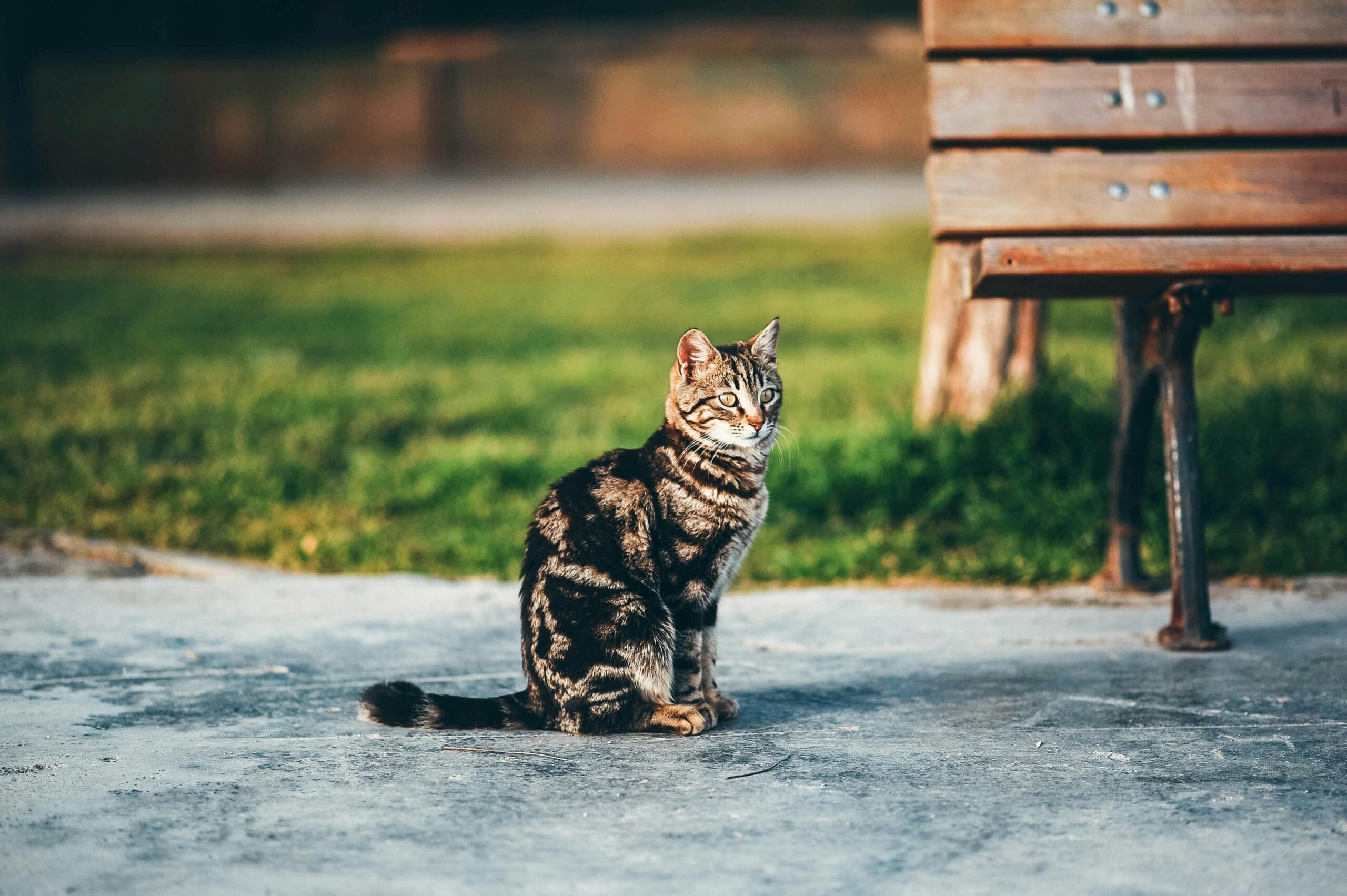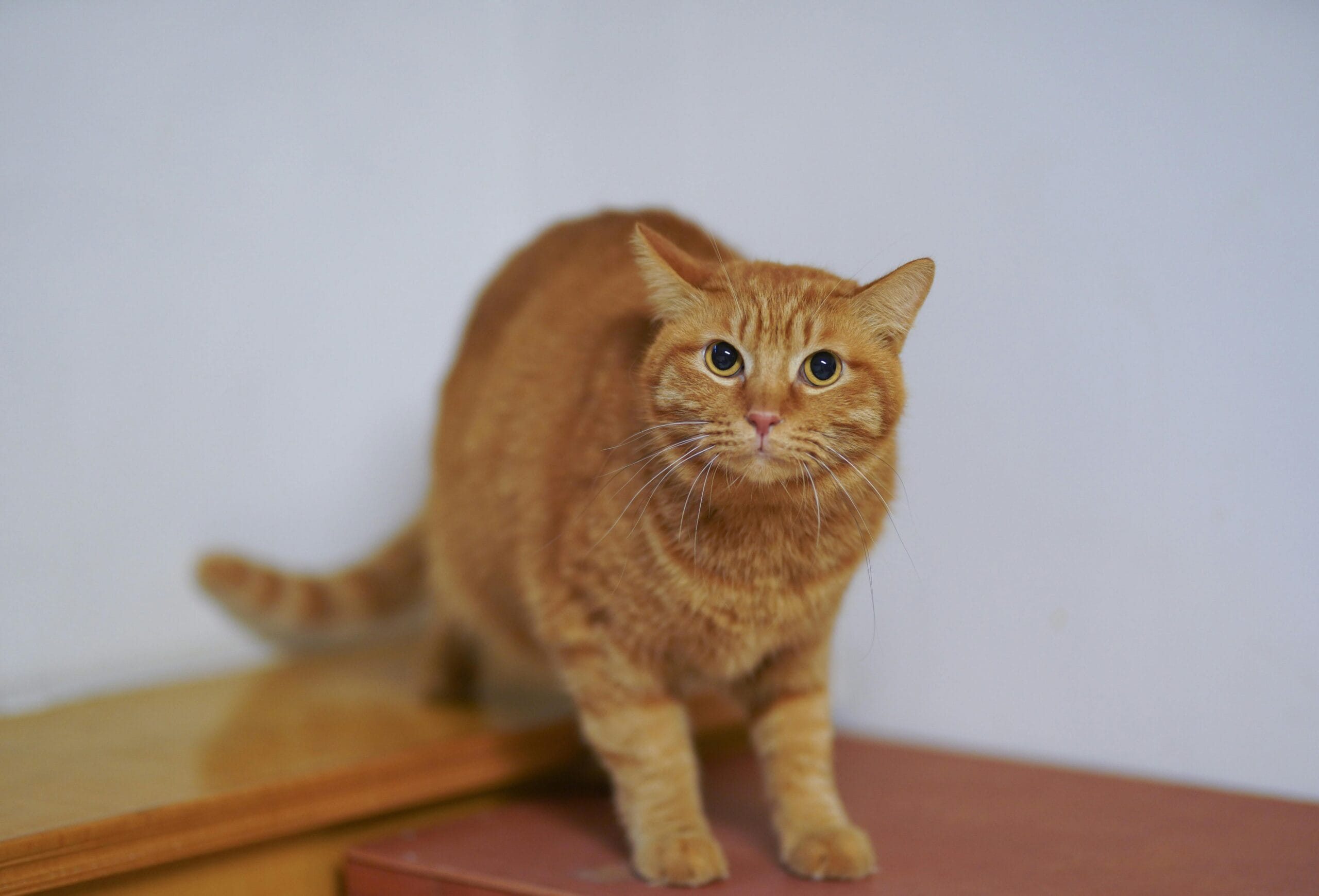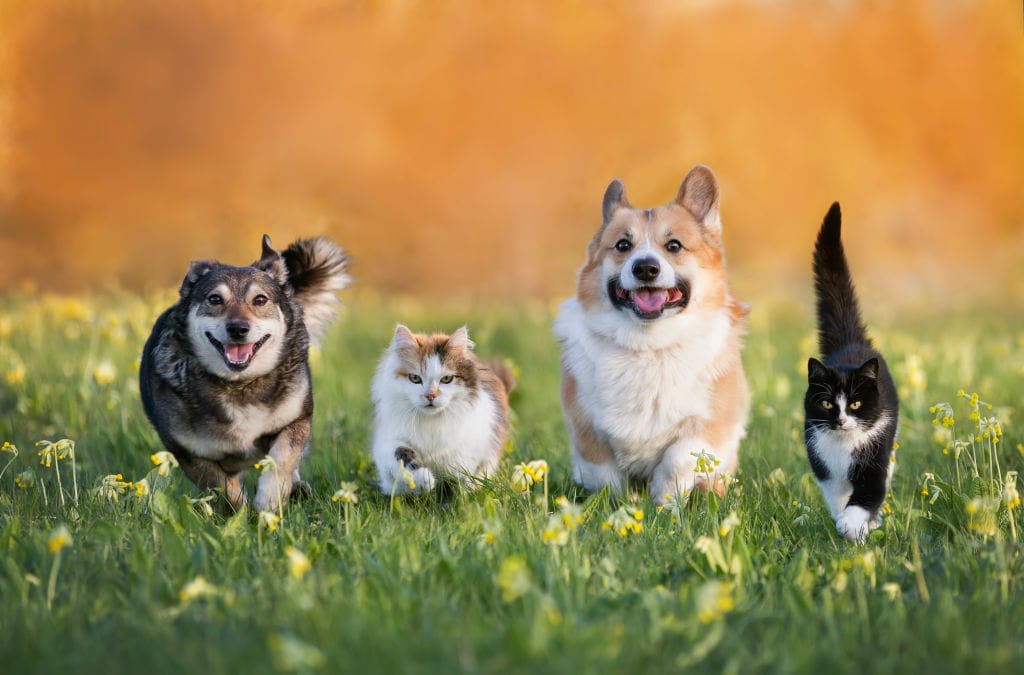Do Cats Eat Their Kittens ?

Do Cats Eat Their Kittens? Discover the shocking reasons why some cats eat their kittens. Understand this heartbreaking behavior. Learn about prevention & what to do if you witness it. Cat eats kitten? Find answers now!
Do Cats Eat Their Kittens? Understanding the Complex Reasons Behind Filial Cannibalism
The heartbreaking sight of a cat eating its kitten is a disturbing reality for many pet owners and animal lovers. The question, “Do cats eat their kittens?” unfortunately, has a complex answer that goes beyond simple cruelty. While it’s infrequent in domestic cats, it’s a phenomenon that occurs in both wild and domesticated felines, and understanding the underlying reasons is crucial to prevention and responsible pet ownership. This article will delve into the various factors that contribute to this behavior, addressing the critical query, “Why do cats eat their kittens?” and exploring the best ways to support cat mothers and their litters.
Why Do Cats Eat Their Kittens? A Multifaceted Problem
The act of a cat eating its kitten, often referred to as filial cannibalism, is rarely due to malice or a lack of maternal instinct. Instead, it stems from a combination of environmental, physiological, and psychological factors. Understanding these contributing factors is vital to addressing the issue and preventing future occurrences. Let’s explore the common reasons behind “cat eats kitten” scenarios:
Stress and Environmental Factors
A significant factor contributing to a mother cat consuming her young is stress. Stressful environments can severely impact a mother’s ability to care for her kittens. This includes:
- Lack of a safe and quiet nesting area: A mother cat needs a secluded and secure place to give birth and raise her kittens. Disturbances, lack of privacy, and noisy environments can heighten her stress levels.
- Fear and anxiety: If a mother cat feels threatened or unsafe, whether from other animals, people, or even loud noises, she might resort to extreme measures, including consuming her kittens to protect what she perceives as weak.
- Poor nutrition: Malnourished mothers may lack the energy and resources to adequately care for their litter. In extreme cases, they might resort to cannibalism as a survival mechanism. Providing a balanced, high-quality diet during pregnancy and lactation is crucial.
- Inadequate shelter: Exposure to extreme temperatures, dampness, or lack of adequate protection can stress a mother cat and affect her ability to care for her newborns.
Physiological Issues
Sometimes, physical factors play a role in a mother cat’s inability to care for her kittens, leading to the unfortunate outcome of “cat eats kitten“. This includes:
- Stillborn or sickly kittens: A mother cat may instinctively consume a kitten that is stillborn or severely ill, recognizing that the kitten has little chance of survival. This is often a natural instinct aimed at resource conservation.
- Mastitis or other health problems: If the mother cat suffers from mastitis (inflammation of the mammary glands) or other health issues, it can impair her ability to nurse and care for her kittens properly. The stress and pain could lead to her eating her own offspring. This is where veterinary care becomes absolutely critical.
- Genetic predisposition: There might be a genetic component influencing filial cannibalism in certain cat breeds or lineages, though research in this area is still ongoing.
Lack of Maternal Instinct
While rare in domestic cats, some mothers may simply lack the maternal instinct to care for their kittens appropriately. This could be due to:
- First-time mothers: Inexperienced mothers might be less adept at caring for their newborns and might inadvertently harm or neglect them.
- Hormonal imbalances: Hormonal issues can affect a mother’s maternal behavior, leading to neglect or even aggression towards her kittens.
Preventing Cats From Eating Their Kittens
Preventing a mother cat from eating her kittens requires a proactive and compassionate approach. Here are some key strategies to consider:
- Provide a safe and quiet nesting area: Create a comfortable, secure, and private space for the mother cat to give birth and raise her kittens. This could be a quiet room, a cat bed, or a sturdy cat house. Ensure it’s away from high-traffic areas and potential disturbances.
- Minimize stress: Keep the environment calm and minimize any potential stressors, such as loud noises, sudden movements, or interactions with other animals.
- Ensure proper nutrition: Feed the mother cat a high-quality diet during pregnancy and lactation, rich in protein and essential nutrients. Consult your veterinarian for dietary recommendations.
- Regular veterinary checkups: Schedule regular veterinary checkups for the mother cat to monitor her health and address any potential problems early on. Early detection of mastitis or other health issues is crucial.
- Supervise first-time mothers: Keep a close eye on first-time mothers, especially in the initial days after birth. Provide support and assistance if needed, but avoid excessive handling.
- Seek professional help: If you witness signs of neglect or aggression towards the kittens, contact your veterinarian or a qualified animal behaviorist immediately. They can provide expert advice and guidance.
Understanding the Underlying Causes: Moving Beyond “Do Cats Eat Their Kittens?”
It’s crucial to move beyond the simple question, “Do cats eat their kittens?” and delve into the reasons why this distressing behavior can occur. It’s rarely a deliberate act of cruelty, but rather a consequence of a multitude of factors, many of which are preventable. By understanding these complexities, we can provide better care for expecting mothers and their newborns, ultimately reducing the chances of filial cannibalism.
For more in-depth information on feline maternal behavior, you can explore resources from the American Veterinary Medical Association (AVMA). Their website offers comprehensive information on various aspects of feline health and behavior. American Veterinary Medical Association
Another excellent resource for cat owners is the International Cat Care website. They provide valuable guidance on all aspects of cat care, including kitten rearing and the management of potential behavioral issues. International Cat Care
The Importance of Early Intervention
Early intervention is vital in preventing the tragic outcome of a mother cat eating her kittens. Regular veterinary checkups, careful monitoring of the mother cat’s behavior, and providing a supportive and stress-free environment can greatly reduce the risk. Remember, prompt action is key in addressing potential problems before they escalate.
Conclusion: A Call to Action
Understanding why a cat might eat its kittens, often a consequence of environmental stress, physiological issues, or lack of maternal instinct, is paramount to responsible pet ownership. By creating a safe, nurturing environment, providing proper nutrition, and ensuring timely veterinary care, we can work to prevent this heartbreaking occurrence. If you’ve had experience with a mother cat and her kittens, we encourage you to share your story in the comments below. Your insights on ‘Do Cats Eat Their Kittens‘ and the challenges you’ve faced will be invaluable to other cat owners and can help us collectively understand and mitigate this complex issue. Share your stories and experiences – your input can help others! Did you have any experience with a mother cat showing signs of aggression or neglecting her kittens? How did you address the situation?

10 FAQs: Do Cats Eat Their Kittens?
Here are 10 frequently asked questions about cats eating their kittens, with concise and helpful answers:
1. Do cats eat their kittens?
Yes, sadly, it’s a phenomenon called kitten cannibalism. While uncommon in healthy domestic cats with adequate resources, it does occur. Understanding why do cats eat their kittens is crucial to prevention.
2. Why do cats eat their kittens?
Several factors contribute to a mother cat (queen) eating her kittens. These include stress (noise, disturbance, lack of privacy), illness in the mother or kittens, insufficient milk production, stillborn or sickly kittens, and inadequate nesting area. If you see a cat eats kitten, investigate these possibilities.
3. Is it normal for a cat to eat the placenta after birth?
Yes, this is a completely normal behavior. It’s instinctive and helps keep the birthing area clean and hidden from predators. This is very different from why do cats eat their kittens.
4. My cat killed one of her kittens. Should I be worried?
Yes, this is concerning. It indicates a potential problem, such as stress, illness, or a genetic predisposition. Consult a veterinarian immediately. The reasons behind “cat eats kitten” scenarios need professional assessment.
5. My cat seems stressed after giving birth. Could this lead to her eating her kittens?
Yes, definitely. Stress is a major trigger. Ensure a quiet, dark, safe nesting area for the queen and minimize disturbances. Understanding why do cats eat their kittens often points to avoidable stress factors.
6. If a cat eats her kittens, will she do it again?
Not necessarily. Addressing the underlying causes – such as illness, stress, or inadequate nesting – can prevent recurrence. Veterinary intervention is crucial after a “cat eats kitten” incident.
7. What should I do if I find my cat eating her kitten?
Try to remain calm and gently remove the surviving kittens to a safe, quiet location. Immediately consult a veterinarian to determine the underlying cause of the “Do Cats Eat Their Kittens” situation.
8. Can a lack of nutrition cause a cat to eat her kittens?
Yes, malnutrition can lead to insufficient milk production, resulting in a mother cat possibly resorting to cannibalism to survive. Ensure your pregnant and nursing cat has a nutritious diet.
9. My cat is ignoring her newborn kittens. Is this a sign she might eat them?
This is a warning sign. Ignoring kittens could precede more severe behaviors like kitten cannibalism. Seek veterinary advice immediately, as it may indicate illness or other underlying issues related to “Do Cats Eat Their Kittens”.
10. How can I prevent my cat from eating her kittens?
Provide a safe, quiet, clean nesting box, ensure proper nutrition for the mother cat, minimize stress, and seek veterinary care if you notice any signs of illness or distress in the mother or kittens. Understanding why do cats eat their kittens allows for proactive prevention.

Do Cats Eat Their Kittens? Practical Tips and Health Considerations
While distressing, it’s important to understand that cats sometimes eat their kittens. This behavior, called kitten cannibalism, can stem from various factors. Understanding these factors is crucial for preventing it and ensuring the well-being of your cat and her kittens.
Reasons Why Cats May Eat Their Kittens
Several factors can contribute to a mother cat eating her kittens:
- Stress: A stressful environment, including loud noises, unfamiliar people, or lack of privacy, can trigger this behavior.
- First-time Mothers: Inexperienced mothers may lack the maternal instincts to properly care for their young.
- Health Issues: Illness, pain, or exhaustion in the mother cat can lead to a decrease in maternal care and potentially cannibalism.
- Stillborn or Sick Kittens: A mother cat may instinctively remove a kitten that is stillborn or appears very ill.
- Inadequate Nesting: A poorly chosen or unsuitable nesting place can cause stress and anxiety, increasing the risk.
- Lack of Proper Nutrition: Malnutrition in the mother cat can impact her ability and desire to care for her kittens.
Practical Tips to Prevent Kitten Cannibalism
Minimizing the risk requires creating a safe and supportive environment for the mother cat and her kittens:
- Provide a Quiet, Safe Nesting Area: Choose a quiet, dark, and secure location for the birthing and nesting process. Ensure it is warm, comfortable, and free from disturbance.
- Minimize Stress: Keep noise levels low, limit visitors, and avoid handling the mother cat and kittens excessively, especially in the early days.
- Ensure Proper Nutrition: Feed the mother cat a high-quality, kitten-rearing diet that meets her increased nutritional needs.
- Veterinary Care: Schedule regular prenatal and postnatal checkups to monitor the mother cat’s health and address any potential issues.
- Observe the Mother Cat: Regularly monitor the mother and kittens, watching for signs of stress or illness in the mother, or any signs of distress in the kittens.
- Supportive Environment: Create a calm and nurturing environment, offering access to fresh water and food.
Health Considerations
If you witness a cat eating its kittens, it’s crucial to consult a veterinarian immediately. The underlying cause needs to be addressed, both for the mother’s well-being and to prevent future incidents. This may involve medical treatment, dietary changes, or behavioral adjustments.
Remember, prevention is key. By providing a supportive environment and ensuring the mother cat’s health, you can significantly reduce the risk of this heartbreaking behavior.
SEO Keywords:
cat eats kittens, kitten cannibalism, cat eating newborn kittens, prevent cat eating kittens, why cats eat kittens, mother cat eating kittens, cat pregnancy, kitten care, feline behavior, preventing kitten death, cat health, postnatal care
1 thought on “Do Cats Eat Their Kittens ?”